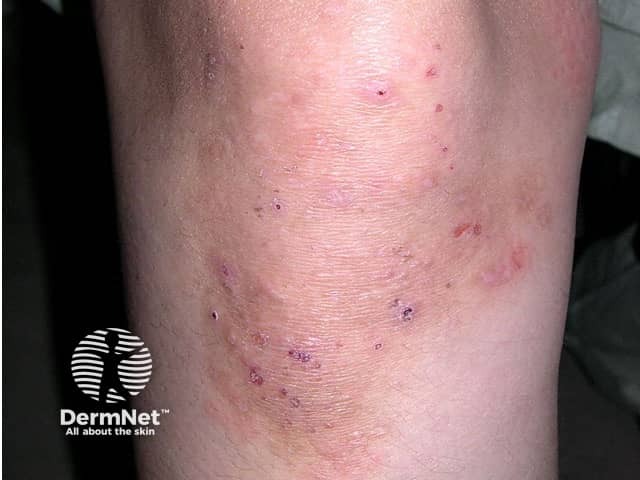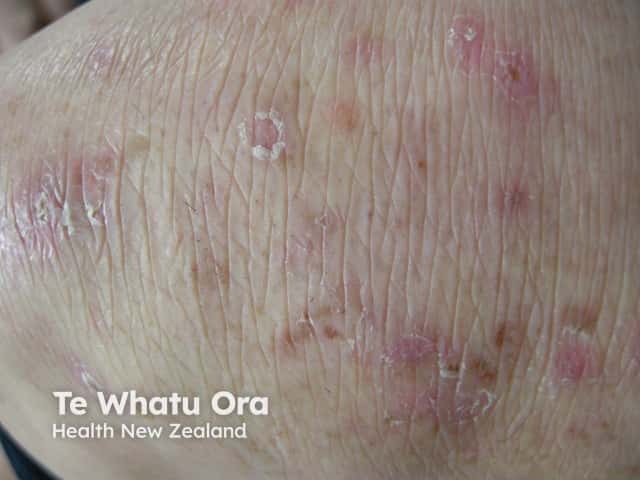Main menu
Common skin conditions

NEWS
Join DermNet PRO
Read more
Quick links
Gluten enteropathy in patients with dermatitis herpetiformis — extra information
Gluten enteropathy in patients with dermatitis herpetiformis
Author: A/Prof Amanda Oakley, Dermatologist, Hamilton, New Zealand. 2001.
What is gluten enteropathy?
Gluten enteropathy, commonly called coeliac disease, affects the majority of children and adults with dermatitis herpetiformis. It is characterised by small bowel villous atrophy. This means that instead of being highly convoluted, the lining of the intestines is smooth and flattened. The result is poor or very poor absorption of nutrients. The patient may feel well or develop the following symptoms:
- Tiredness (80%)
- Abdominal discomfort and bloating (75%)
- Weight loss (30%)
- Constipation (30%) or diarrhoea (50%)
- Pale stools that float on the surface of the toilet pan
- Bone fractures due to osteoporosis.

Dermatitis herpetiformis

Dermatitis herpetiformis

Dermatitis herpetiformis
Other features of gluten enteropathy
The range of conditions less commonly induced by gluten also includes:
- Signs of malnutrition such as scurvy
- Neurological problems including ataxia (loss of balance), polyneuropathy, epilepsy
- Heart problems including pericarditis and cardiomyopathy
- Thin dental enamel
- Recurrent abortions (miscarriage)
- Fatty liver resulting in an abnormal liver function
- Aphthous ulcers and angular cheilitis
- Dry skin
- Nail and hair abnormalities.
Patients with gluten enteropathy or coeliac disease sometimes suffer from other autoimmune diseases possibly associated with gluten intolerance. These include insulin-dependent diabetes mellitus, thyroiditis, autoimmune hepatitis, Sjögren syndrome, Addison disease, atrophic gastritis, alopecia areata, vitiligo, and urticaria.
They may also be affected by conditions that are not related to gluten intolerance. These include IgA deficiency, psoriasis, Down syndrome and primary biliary cirrhosis.
Non-Hodgkin lymphoma, affecting the intestines or any part of the body, is a serious complication of gluten enteropathy but is fortunately rare, affecting less than 1% of patients.
For further information about testing and treatment, see DermNet's page on dermatitis herpetiformis.
On DermNet
Other websites
- Manufactured Food Database (NZ) for gluten free diet
- NZ Coeliac Society
- Gluten Intolerance Group of North America
- New Insights into the Pathogenesis of Celiac Disease (Frontiers, 2017)
- Medscape:
